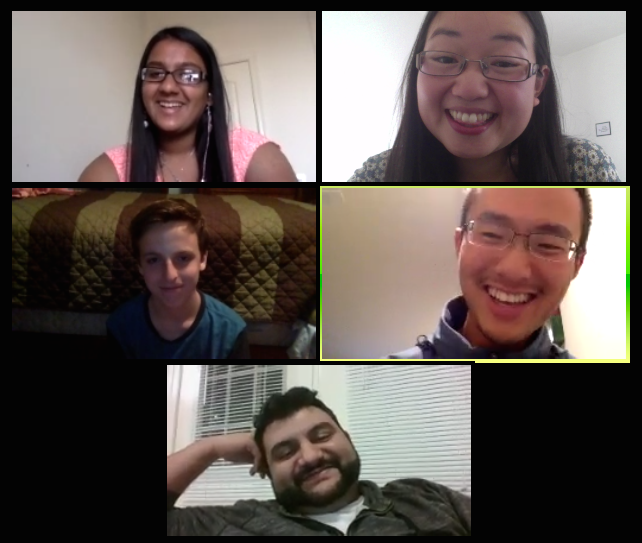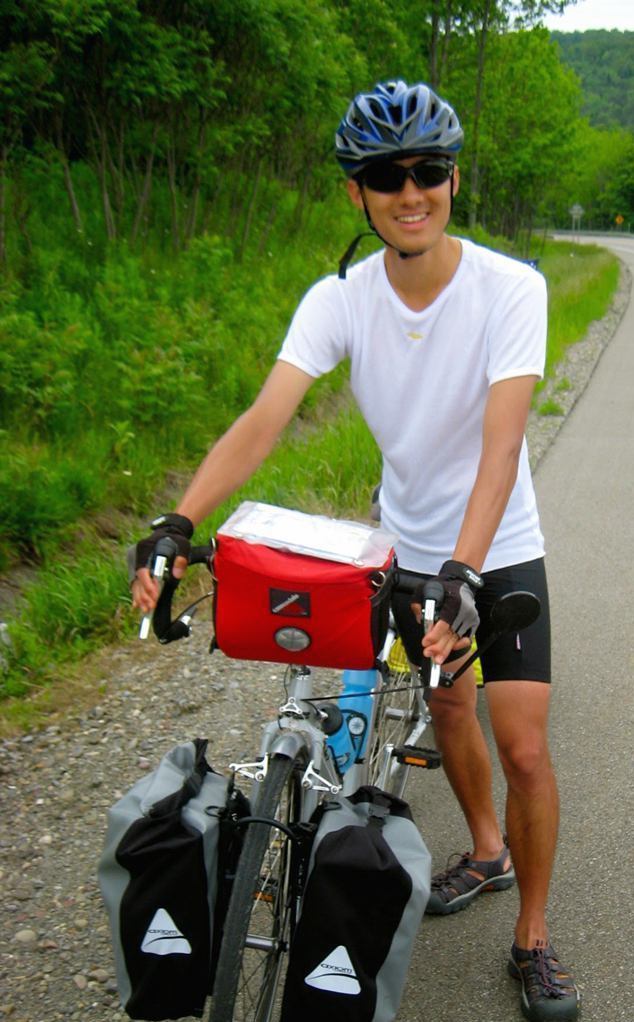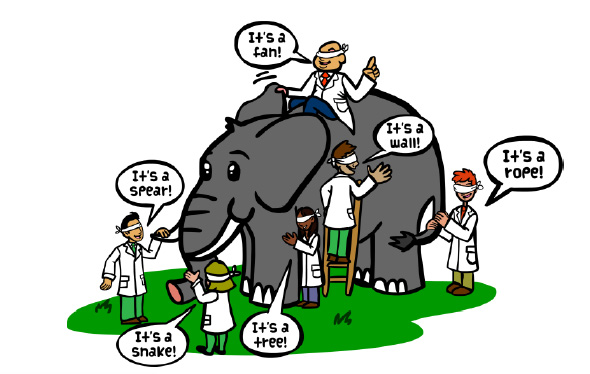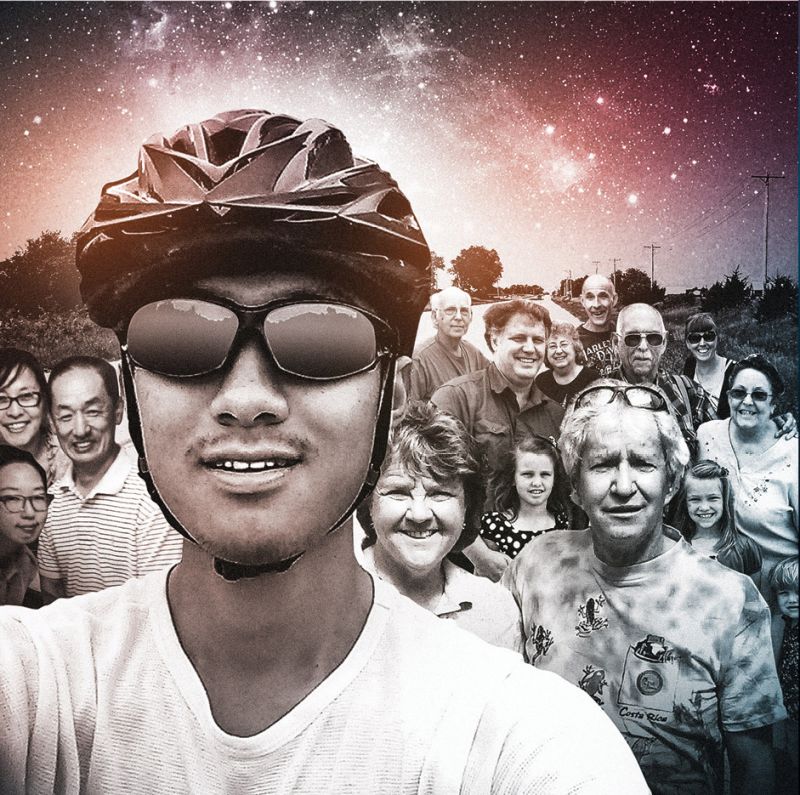Experiments In Truth: Interns Q&A With Zilong!

For our summer internship this week, our theme was on Truth, and we were graced with the gift of getting to dialogue with Zilong-- a pilgrim of that very quality.
Before we even began, Zilong prefaced the conversation with "When I was at Saheli and Jacob's age, truth was not really on my mind. So I bow to you for starting the project so early." :) (Every week, for every theme, Pranidhi, Amit, and I feel very much the same way. :))
Below are some excerpts from our interns' Q&A.
Can you share about your childhood? Did you have any early influences in this search for truth?
The more I think about my grandparents these days, the more I see the root of it. They are really such truthful people-- even during the Cultural Revolution, in China, or difficult political times when family members were telling on each other in order to stay alive, they've been very truthful. Even at great personal costs. And I never knew those stories, but these past few years, going back to China, asking my grandparents for their story, just made me feel so much gratitude for them. Every seed of goodness I have was probably planted by them decades before I was born.
Amit: What prompted your first cross-country trip?
During college, when I was first climbing the intellectual peaks, it showed me an emptiness in the whole endeavor. I remember this one meeting with a professor... I loved her class... I asked her what made her want to study [her subject area] in the first place. She said, "It's an interesting body of thoughts. It's an interesting idea." So what interested her is not how it applies to real world or the "truth" in the study, but more that it's an elaborate mental fantasy land that she can play in. That really devastated me... this whole ivory tower... that pushed me to go out of my comfort zone.
Along your pilgrimages, you've met so many people with so many backgrounds. Can you share about a time you engaged with someone very different from you? How did you connect with them?
During my current trip, I was in Nevada, trying to catch a ride because I needed to catch up for some distance. I stood on the side of the road for a good half hour. Many trucks went by and didn't stop.  There was this one blue pickup truck. It went by, and after a few minutes came around and picked me up. It's a 19-year-old boy. He just had the opposite viewpoint from me on just about every social and political issue. He collects guns... He loves building diesel engines and driving those enormous diesel trucks in the mud, in the dunes, and then would drown the engine and rebuild it.
There was this one blue pickup truck. It went by, and after a few minutes came around and picked me up. It's a 19-year-old boy. He just had the opposite viewpoint from me on just about every social and political issue. He collects guns... He loves building diesel engines and driving those enormous diesel trucks in the mud, in the dunes, and then would drown the engine and rebuild it.
But everything he said made perfect sense to me. And he is the one who is being so kind to give me a ride-- and for turning back to do so. I can follow his logic every step of the way: "Oh, I can see why you think that way...." It shook me up as a reminder that nobody is crazy. Nobody is out of their mind for believing what they believe. It really pushes me to think: "Oh, where do I come from. Why do I think I hold the truth in all these subjects?"
What motivated you to do a second, much longer pilgrimage?
Thinking of Gandhi's definition of truth in a sense is this question of truth. Over the past two years, volunteering with ServiceSpace and living at Casa de Paz, I feel that I've gotten glimpses of the truth-- but haven't brought it down to a heart-mind-body cellular level. So this journey is very much to make the understanding to burn it into the cellular level. On the other hand, there was also just a call that arose to go on this pilgrimage. This calling was so strong that doing anything else would be lying to life. When the idea of going on this pilgrimage arose, I almost had tears in my eyes, because I knew it was like a prayer being answered. If I do not follow the call-- do not be true to what has been given-- I can feel part of me dying in every moment. So it pretty much wasn't a choice, but very much a gift from the mystery.
Amit: That reminds of the story of 6 blind men and an elephant. :)

Jacob: You talked about how you got rejected a lot -- like the blue truck that came back to pick you up. If I got rejected so many times, I feel like I'd lose faith in humanity, or the kindness of strangers. How did you manage to overcome that rejection? How did you transform through that process?
That was one of the main challenges: to hear "no" and to have faith. At a retreat this past week, Rev Heng Sure had an interesting discussion on the difference between a begging bowl and an alms bowl. When monks go on alms rounds, what they hold in their hands is not a begging bowl-- because they're not attached to the outcome-- they're not attached to whether or not people treat them kindly or give. They will offer a prayer silently in their hearts anyway. What they -- the monks-- are doing when they go on alms rounds is making themselves available for if the other side cares to practice generosity or kindness. So when I'm sticking my thumb up to catch a ride or knocking on people's doors for a place to stay, that helps me see that I don't owe them anything, and I don't want anything from them. We're making each other available to practice generosity.
What made a big difference is paying more attention to what intention I'm holding, instead of having the expectation. So if I'm paying attention to the expectation of whether this person will say yes or no, then I'll have a wild roller coaster ride of emotion, of rejection, etc. But if I pay attention to my intention -- that whatever their reaction is, I'm here to offer prayer; I'm here to engage and offer an invitation [for generosity] -- then when I'm anchored in that intention, it doesn't really matter what their response is. Oftentimes, when I'm anchored in that intention (of offering a prayer) that success rate is a lot higher.
Also, statistics help. :) Because, on average, one in five or one in four doors that I knocked on would say yes. So I would develop this inner assurance that, "It's okay, I know the one who will say yes is just a few knocks away." :)
Amit: What were some of the notable or memorable reactions you got when you knocked on people's doors?
Often, by the way they open their door, I already know whether they'll say yes or no. It's shocking how, in that first instance, if they open the door with a smile on their face, ready to help. Or if they open the door guarded, as if peeking through the metal bars... then it's no good.
Those who have a garden in their home, or who grow some of their own food, have always said yes. One of the most common excuses that people use is, "My dog barks. I would let you stay, but my dog barks all the time." So you see the whole spectrum. But that's their practice. And my practice is just to offer a silent prayer. I don't know where they're coming from. They might be having a really tough day. They might have a house that right now is in a mess that they don't want to share. So we each have our practice in that moment.
Jacob: How did you approach people? For me, that would be the most difficult part-- to knock on someone's door and ask them, "Hi stranger, can I stay with you for a night?" How does it come across not creepy :) -- how do you sound authentic and genuine?
There is an inner dimension and there is the outer technicality. :)
The outer technicality is pretty simple after trial and error. I would park my bike in front of their door, so when they open the door, they see me and the bike-- so they get a context of why I would make such a request. And when I approach, I am sweaty, tired, this skinny Asian guy knocking on their door-- it's not very threatening to them. So it doesn't come out of nowhere. It creates a context.
But what's most important is what goes on inside. I have to remind myself everyday that it's not about if they say yes or not-- I'm making an invitation to engage in whatever way. And that engagement will last for 30 seconds or 16 hours.
 When I go up to the door, I'll just say, "I'm on a pilgrimage throughout the US and I'm hoping to take rest around here for the evening. Would you be willing to let me pitch a tent in your yard?" It's less about the words I say, but the heart and presence. Oftentimes, after we've chatted for awhile, they will say, "As soon as you approached, I could tell you are a good guy, so I feel comfortable letting you stay."
When I go up to the door, I'll just say, "I'm on a pilgrimage throughout the US and I'm hoping to take rest around here for the evening. Would you be willing to let me pitch a tent in your yard?" It's less about the words I say, but the heart and presence. Oftentimes, after we've chatted for awhile, they will say, "As soon as you approached, I could tell you are a good guy, so I feel comfortable letting you stay."
Very often, the next morning when I depart, many of the families that I stay with will say, "We feel so blessed that you came to our house." It's not because that "I" am blessing them-- but there's an opportunity for them to practice generosity to be their best self.
In the beginning of the journey, I felt like, "Oh, I'm troubling them. I'm adding more work for the family. But now, more and more, I have faith that when I do my part right, it's really a gift for them to cultivate their merits, and their generosity."
Saheli: In the story we read, it said, "Don't think about riding all the way to California. Just think about each day's distance, the mile you're covering now." How were you able to get past thinking about the future (and what you were going to do the next day) to simply think about the present?
I am still just scratching the surface at that question. Part of what has helped is just having my plan thrown out of the window so often. It just made me realize how ridiculous it is. The weather may change, my knee may hurt, the bike may break down-- there are just so many uncertainties that after awhile, I just get tired of making plans. :)
The other is, they say, "The life you can plan is too small for you to live." So there definitely still is a place for planning. But right now, what is more important-- a practice that I'm trying to do-- is set an intention, to channel the prayer or energy in a direction, and let the mystery unfold.
Amit: There's a saying, "If you want to make God laugh, tell him your plans."
[Everyone laughs. :)] And I think there's a difference between worrying about the future and making dedicated plans. Probably most of the "planning" that I think I'm doing is worrying about the future-- running through useless scenarios in my mind. But it's very important to plan. For example, to plan ahead for my visa. For all these logistical parts, I can't rely on God to apply for my visa. So I still have to do my part of the work.
Pranidhi: Were there times in this trip that were challenging and/or when you were met with resistance, internal or external? How did you continue on in those moments?
I wrote in my most recent reflections that, quite often, I would forget why I'm doing this pilgrimage in the first place. People would ask me, "Oh, what inspired you to go on this journey?" I would just give the automatic response that I have given many times. And I would think, "Oh my gosh, that's just an automatic response that I've given many times. I'm lost. I've forgotten why I'm on this journey." That's such a precious lesson when I'm reminded, "Wow, you're actually lost. You're not a pilgrim, you're just being a vagabond." What helps me to pull me back is really stillness and service... Now through trial and error, when I meditate, I'm never lost. It helps me bring it back to why I'm doing this in the first place. When I'm trying to serve -- even the smallest things like being nice to the old lady washing the dishes or even just being nice to the cat. The smallest service reminds me, "Okay, I'm tapping into this web, this dimension that has called me into this pilgrimage in the first place."
Saheli: Did you ever feel like giving up?
The thought of giving up has never crossed the mind, either in the trip across the US three years ago, or this current one. Even at a very basic level, just [thinking of] how many people have helped me prepare for this pilgrimage-- there's no way that I'm going to shortchange them. It's not like an ego thing-- it's not like I have to prove it. But I know that giving up is not an option. It's not a contract I can void. It's like a contract with nature. With the universe, there's no bowing out of it. One of the blessings is having friends who inspire me. They are my insurance against quitting. Their blessings and companionship-- their prayers-- are my insurance.
Posted by Audrey Lin on Jul 21, 2016



On Jul 21, 2016 Pranidhi Varshney wrote:
Post Your Reply